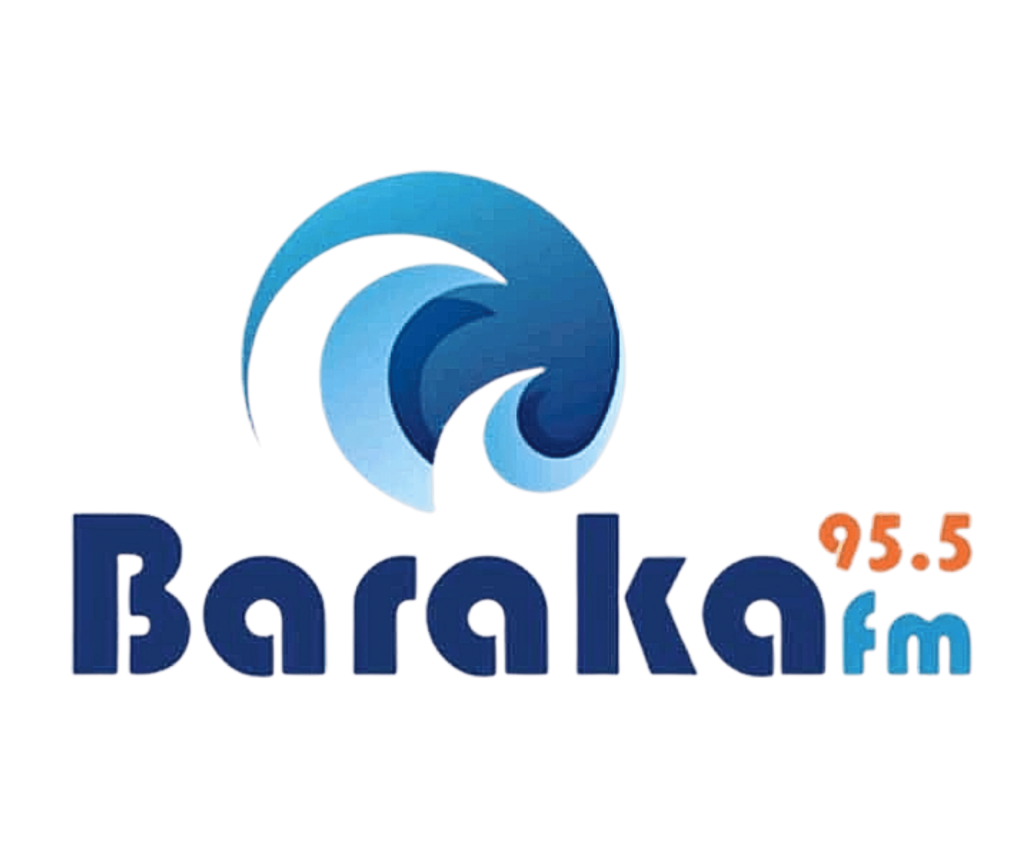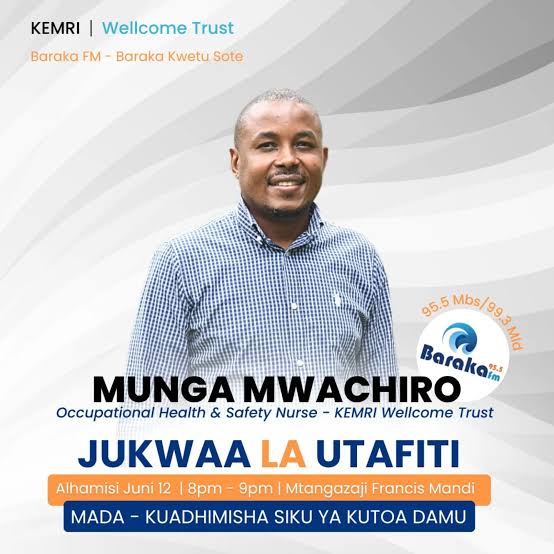The Kenya Medical Research Institute (KEMRI)-Wellcome Trust Kilifi is set to celebrate 20 years of voluntary blood donation on Friday, June 14, 2025, with a commemorative blood drive and community event at Alaska Grounds in Malindi.
The event coincides with World Blood Donor Day and highlights a renewed appeal for greater community involvement in regular blood donation.
Speaking on Baraka FM’s “Jukwaa La Utafiti”, Munga Mwachiro, the Occupational and Health Safety Officer at KEMRI-Kilifi, called on schools, churches, sports clubs, community groups, and other stakeholders to embrace blood donation as a shared civic duty.
He emphasized the urgent need for more consistent donors to help address the region’s unstable blood supply.
KEMRI’s blood donation initiative began in 2014, prompted by critical shortages at the institute’s High Dependency Unit (HDU), where severely ill children and patients with sickle cell disease urgently needed transfusions. A group of committed staff launched the first official blood drive in collaboration with the National Blood Transfusion Service (NBTS) and Kilifi County Hospital. Since then, the program has collected over 1,260 pints of blood, potentially saving more than 5,000 lives.
Despite its successes, Mwachiro noted that Kilifi County still faces challenges, including low numbers of regular donors and inconsistent blood availability. He urged residents to take advantage of donation facilities available at Kilifi County Referral Hospital, Mariakani, Mtwapa, and Malindi Sub-County Hospitals.
“Blood is critical in emergency care and for patients undergoing treatment for complicated childbirth, leukemia, sickle cell disease, severe burns, kidney dialysis, and chemotherapy. Unlike many medical resources, blood cannot be manufactured, it must be donated voluntarily,” said Mwachiro.
In addition to saving lives, donating blood benefits the donor, too. It can reduce stress, stimulate the production of new blood cells, and boost immunity. Donors also receive free health checks, including assessments of blood pressure, hemoglobin levels, body weight, and blood group typing. All procedures are conducted by qualified medical staff, and any health issues identified during screening are followed up by health professionals.
There are different types of blood donation, including:
– Drive donations during organized events
– Replacement donations made on behalf of specific patients
– Relationship donations directed to known recipients
– Autologous donations for one’s own planned medical procedures
– Therapeutic donations prescribed for certain conditions
To be eligible to donate, individuals must:
– Be aged 16 to 65 years
– Weigh at least 50 kilograms
– Be in good health
– Not be pregnant or breastfeeding
– Not have HIV or uncontrolled high blood pressure
Before donating, one should:
– Eat a meal within six hours
– Stay hydrated
– Get enough sleep
– Wear a sleeveless or short-sleeved shirt for easier access to veins
After donating, donors are advised to:
– Eat iron-rich foods
– Avoid alcohol for 48 hours
– Rest from exercise or heavy activity for at least one day
As KEMRI-Kilifi marks this major milestone, the institution hopes that more community members will step forward.
“Give blood. Save lives. Be part of the legacy,” said Mwachiro.






